Some highlights from the EuroGOOS conference
The 9th EuroGOOS International Conference “Advances in Operational Oceanography” took place from 3 to 5 May 2021. The triennial conference, in virtual format this year, focused on discussions around expanding Europe’s ocean observing and forecasting capacity, welcoming 450 participants from 45 countries around the globe.
Plenary session “Connecting the Ocean Observing and Forecasting Systems Globally”
The EU4OceanObs action coordinator of the G7 Future of the Seas and Oceans Initiative (G7 FSOI), Maria Hood, was one of the speakers in the plenary session on “Connecting the Ocean Observing and Forecasting Systems Globally”. The session discussed the importance of integration in ocean observing, monitoring and operational systems and structures on a global scale. Maria presented the EU priorities with links to the 5 actions areas of the G7 FSOI, including coordination of ocean observations within Europe and cooperation with other countries to expand the scope of ocean observation infrastructure. Maria also highlighted the need for governance integration for a coordinated global ocean observing system. Watch the video recording of Maria Hood’s presentation below:
Launch of EuroGOOS 2030 Strategy
The new EuroGOOS 2030 Strategy was released during the conference. It underpins the implementation of the Global Ocean Observing System (GOOS) 2030 Strategy and expands the EuroGOOS strategic foci to include the operational monitoring, data provision, and services for ocean health and climate. This Strategy seeks to strengthen the contribution of the EuroGOOS large network of organisations to the UN Decade of Ocean Science for Sustainable Development 2021-2030. Furthermore, it addresses the need for an integrated and coordinated approach in the ocean observing system, a recurring theme raised throughout the conference.
European Marine Research Infrastructures side event
Two sessions focussed on Europe’s marine research infrastructures (RIs), crucial mechanisms for sustaining global ocean observations in Europe. A breakout session looked at the status of RIs and how they are building a strong European network of ocean observing system operators with presentations from EuroFleets+, Euro-Argo, JERICO-RI, GROOM II, and EMSO. A side event on the cooperation framework between marine RIs in Europe, discussed the future strategy under a collaborative plan within the landscape of the UN Decade of Ocean Science and the European Ocean Observing System (EOOS). This session discussed the next steps in the sharing of knowledge and expertise, strengthening cooperation on both field activities and new technologies, and possible integration of activities where possible. Such integration would catalyse the creation of robust interactive data interfaces, promote joint activities on marine research and services, and raise public awareness on marine environmental issues.




